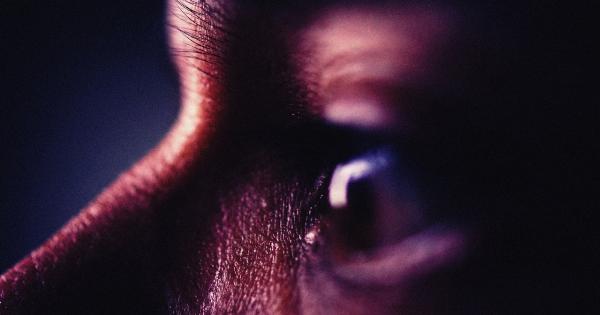Cancer is one of the deadliest diseases in the world, affecting millions of people every year. Despite advances in modern medicine, there are still no cures for many types of cancer.
However, there is hope for the future, thanks to a group of furry friends – dogs. Dogs are now being trained to detect cancer in humans, using their powerful sense of smell.
How Dogs Detect Cancer
Dogs have an incredible sense of smell, which is up to 100,000 times more powerful than that of humans. They can detect the slightest chemical changes in the air, which can indicate the presence of cancer.
Cancerous cells release distinctive volatile organic compounds (VOCs) that are different from those detected in healthy cells. These VOCs have a unique smell, which can be identified by dogs.
To train a dog to detect cancer, a sample of the breath, urine, or sweat of a patient with cancer is used. The sample is then placed in a container. The dog is trained to identify the container that contains the sample with the cancerous cells.
Once the dog has been trained, it can detect cancer in patients with a high degree of accuracy.
Types of Cancers That Dogs Can Detect
Dogs can be trained to detect a variety of different cancers, including:.
- Breast cancer
- Lung cancer
- Ovarian cancer
- Prostate cancer
- Melanoma
- Colon cancer
- Pancreatic cancer
Research has shown that trained dogs can detect these cancers with an accuracy rate ranging from 97% to 99%. This makes them a valuable tool in the fight against cancer.
How Dogs Are Used in Cancer Detection
Dogs are used in a variety of settings for cancer detection, including:.
Hospitals
Some hospitals have begun using dogs to detect cancer in patients. The dogs are trained to sniff out cancer in breath and urine samples, allowing doctors to diagnose cancer at an early stage.
This can lead to earlier treatment and a higher chance of recovery.
At Home
There are also some companies that offer at-home cancer detection kits that use dogs. These kits typically involve the patient collecting a breath or urine sample and sending it to the company for analysis.
The company then uses trained dogs to identify any cancerous cells present in the sample.
Research
Dogs are also being used in cancer research, as they can help scientists better understand the molecular changes that occur in cancer cells.
By examining the chemicals that dogs detect in cancer cells, researchers can identify new biomarkers that can be used to develop better diagnostic tests and treatments for cancer.
The Future of Cancer Detection
The use of dogs in cancer detection is still in its early stages, but the potential benefits are enormous.
As more research is conducted, we may see the development of new diagnostic tools that use dogs to detect cancer earlier and more accurately than ever before.
In addition, the training of dogs to detect cancer may also lead to the development of new treatments.
By understanding the molecular changes that occur in cancer cells, researchers may be able to develop new targeted therapies that specifically attack cancer cells while leaving healthy cells untouched.
Conclusion
Dogs are amazing creatures that are now helping us fight cancer. Their powerful sense of smell has allowed them to detect cancer with a high degree of accuracy, making them a valuable tool in the fight against this deadly disease.
While the use of dogs in cancer detection is still in its early stages, it holds great promise for the future of cancer diagnosis and treatment.























